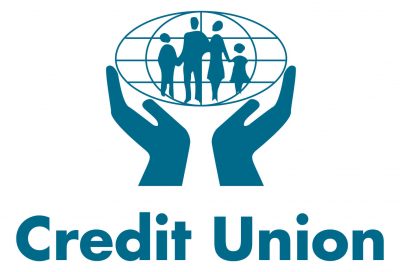By Ed Thompson
 The church is not a credit union. Not that there’s anything wrong with credit unions. Although I have never joined one, I have thought about it occasionally. There certainly seem to be advantages to doing so. I understand that you can get lower interest rates on loans and higher interest rates on savings accounts and certificates of deposit at a credit union. Those are good reasons to make the switch from a bank, but they’ve never been compelling enough to motivate me to take that step. Even more than these perks, what makes credit unions so popular is they take care of their members. That’s their primary focus, their primary concern. They also intentionally limit themselves to a particular demographic – people who belong to a certain union, a certain branch of the armed forces, or perhaps all those who work at a particular company or in a particular industry. That allows them to be more intentional with their programming as well as with their advertising.
The church is not a credit union. Not that there’s anything wrong with credit unions. Although I have never joined one, I have thought about it occasionally. There certainly seem to be advantages to doing so. I understand that you can get lower interest rates on loans and higher interest rates on savings accounts and certificates of deposit at a credit union. Those are good reasons to make the switch from a bank, but they’ve never been compelling enough to motivate me to take that step. Even more than these perks, what makes credit unions so popular is they take care of their members. That’s their primary focus, their primary concern. They also intentionally limit themselves to a particular demographic – people who belong to a certain union, a certain branch of the armed forces, or perhaps all those who work at a particular company or in a particular industry. That allows them to be more intentional with their programming as well as with their advertising.
Church members aren’t – or at least they shouldn’t be – the primary focus, the primary concern of the church. Nor should we limit ourselves to a particular demographic. Yet that’s what happens even though it’s often unintentional. Most church members look, think, and act alike. There’s very little, if any, diversity in most of our congregations.
And it’s not that churches shouldn’t care about or do things for their members, but sometimes our energy and our efforts seem to be primarily focused inward. For example, churches hold weddings and funerals for their members. Churches offer the sacraments of baptism and the Lord’s Supper for their members. Churches visit their members when they are sick and/or when they are in the hospital or a nursing home. Churches offer counseling for their members in times of crisis. Churches provide youth group(s), Sunday School classes, and Vacation Bible School for their members. Worship can even become rote, devoid of anything new or challenging and avoiding anything that may offend their members. We can hardly deny that certain benefits and privileges come with being a member of a church.
And yes, churches do and should listen to their members. Churches vote on electing their officers, calling a pastor, and selling property, among other things. When we vote, the majority prevails. Yet if a congregation calls a pastor by, say, a vote of 54-53, or even 64-43, then the pastor has received a majority of the votes, but they would not be well served, and the church would not be well served if they decided to accept that call. Or if a church votes by, say, 52-48% to proceed with a capital campaign, a majority of the members have affirmed that that’s what they should do. However, if that many people are opposed to taking that step, it’s probably not a wise thing to do.
A far greater danger is that a church becomes so internally focused that they only listen to their members. They don’t hear, they don’t see, they don’t consider what is happening in their community. They overlook, if not ignore, their neighbors. They forget to ask what God would want them to do. I believe God wants us to care for one another and to help those in need. However, the “one another” that God has in mind extends outside the walls of the church. It includes non-members and maybe especially people who don’t look like us or act like us or think like us.
We can do better. It starts by looking around our community. It continues with prayer. It includes listening to our neighbors, researching what may be causing the problems we discover, and taking action to address the immediate needs as well as forming partnerships to address the wider systemic issues. For while it’s a good thing to feed the hungry, we also need to challenge the systems that encourage food insecurity. And, while it’s a good thing to keep the victims of gun violence in our thoughts and prayers, we also need to take steps to prevent so many needless deaths.
We can probably learn some things from credit unions, but we also need to remember that our calling as a church is far different and far more inclusive because it reflects the wider, more inclusive love of our God.
(The main idea for this article comes from the keynote address delivered by the Rev. Dr. Jack Sullivan, Executive Director of the Ohio Council of Churches, at the “Faith and Community in Appalachia Conference” sponsored by the West Virginia Council of Churches.)

Excellent words, Ed! Thank you for them.